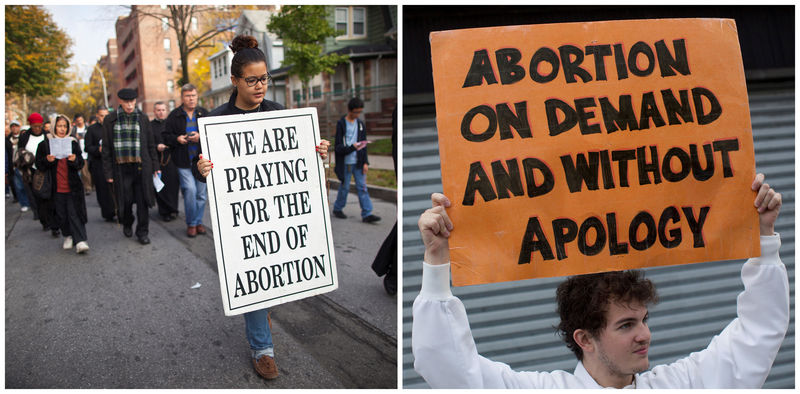By Yasmeen Abutaleb
WASHINGTON (Reuters) - The Trump administration on Wednesday said it would end scientific research at the National Institutes of Health that relies on fetal tissue from elective abortions, and would accelerate efforts to find alternatives for such research, a move welcomed by anti-abortion groups.
Scientists say fetal tissue is critical for research into many complex diseases, including HIV, Alzheimer's and cancer.
The U.S. Department of Health and Human Services also said on Wednesday it ended a $2 million-a-year contract with the University of California, San Francisco (UCSF), that involved the use of fetal tissue. In September, the agency ended a contract between Advanced Bioscience Resources Inc and the Food and Drug Administration, that used fetal tissue to develop testing protocols.
There are 200 external government-funded projects that use fetal tissue that will not be affected by the decision, an HHS spokeswoman said. The new policy affects three of NIH's 3,000 internal projects, she said, adding that they will be allowed to continue until fetal tissue material runs out.
The NIH spent about $100 million on fetal tissue research projects last year, according to the New York Times.
HHS said it ended the contract with UCSF for ethical reasons, but did not specify what those were. NIH declined to comment, referring all questions to HHS.
"HHS Secretary Alex Azar is putting millions of dollars in lifesaving research at risk to please a small group of anti-abortion extremists," said Mary Alice Carter, senior adviser at Equity Forward, an HHS watchdog group.
Anti-abortion advocates who have pressed the Trump administration to end fetal tissue research for months, declared the announcement "a major pro-life victory."
"It is outrageous and disgusting that we have been complicit, through our taxpayer dollars, in the experimentation using baby body parts," Marjorie Dannenfelser, president of the anti-abortion group Susan B. Anthony List, said in a statement.
The administration of U.S. President Donald Trump has championed several policies to restrict abortion both in the United States and abroad. A Reuters report last week detailed how Vice President Mike Pence, who has been driven throughout his political career by his evangelical Christian beliefs to restrict abortion, has played a quiet, behind-the-scenes role in abortion policy.
Dannenfelser told Reuters she has worked closely with Pence's office and officials at HHS on numerous issues, and that her group and likeminded anti-abortion activists have urged the agency to end fetal tissue research contracts. Some anti-abortion advocates have criticized NIH head Francis Collins for defending such research.

Abortion has re-emerged as a central national issue in recent weeks as nine states, including Alabama, Georgia and Missouri, passed restrictive laws this year that all but outlaw the procedure. The laws aim to prompt court challenges that would make it to the conservative-dominated Supreme Court with the hope that it would overturn the Roe v. Wade decision that guaranteed a woman's right to abortion.